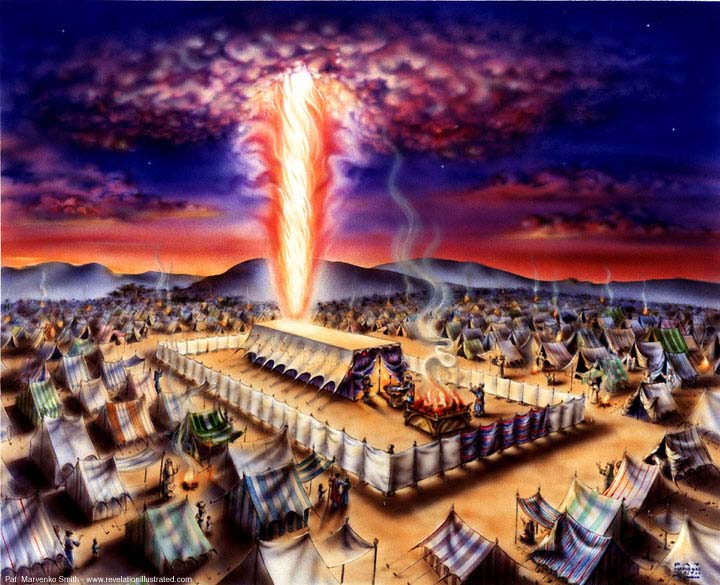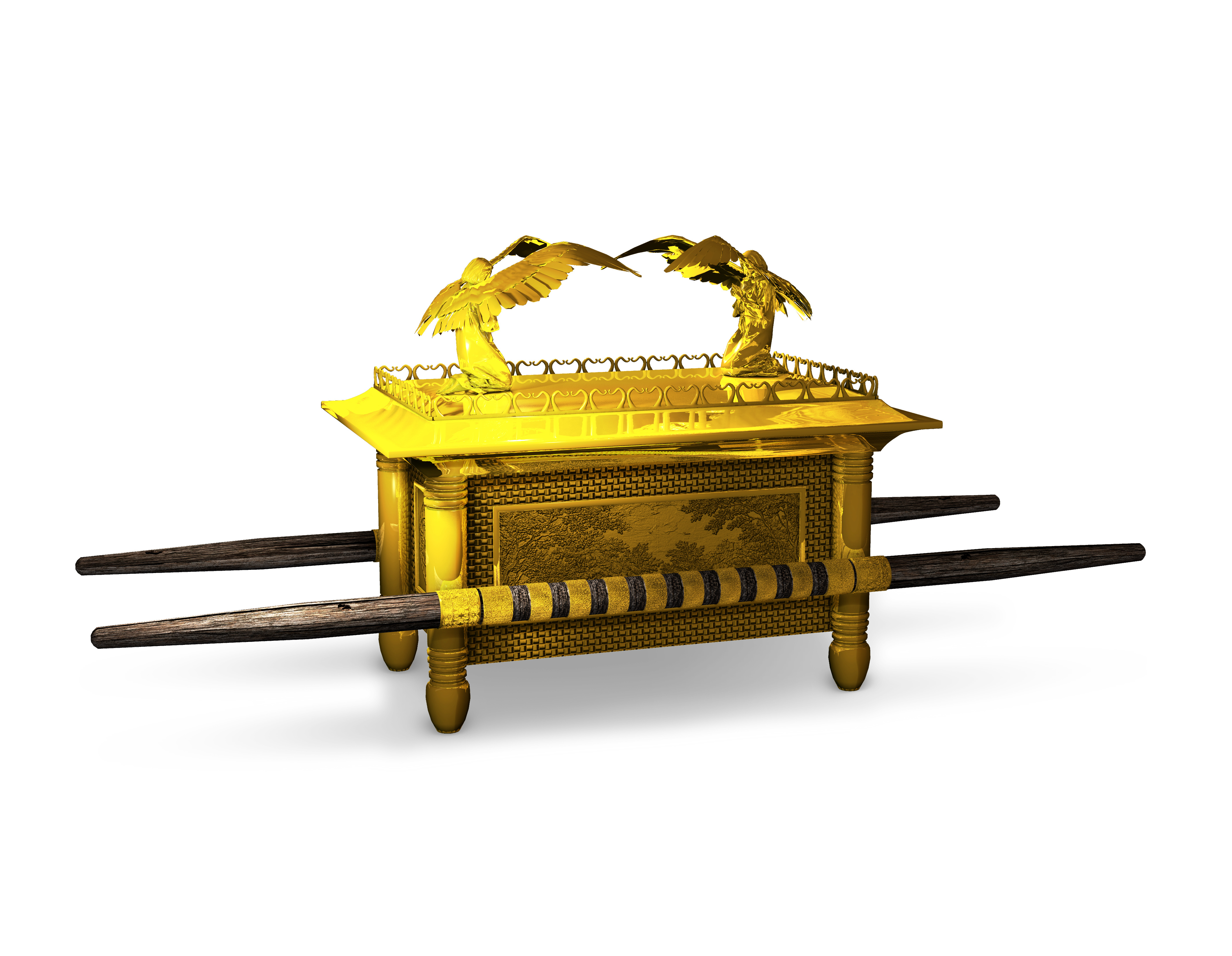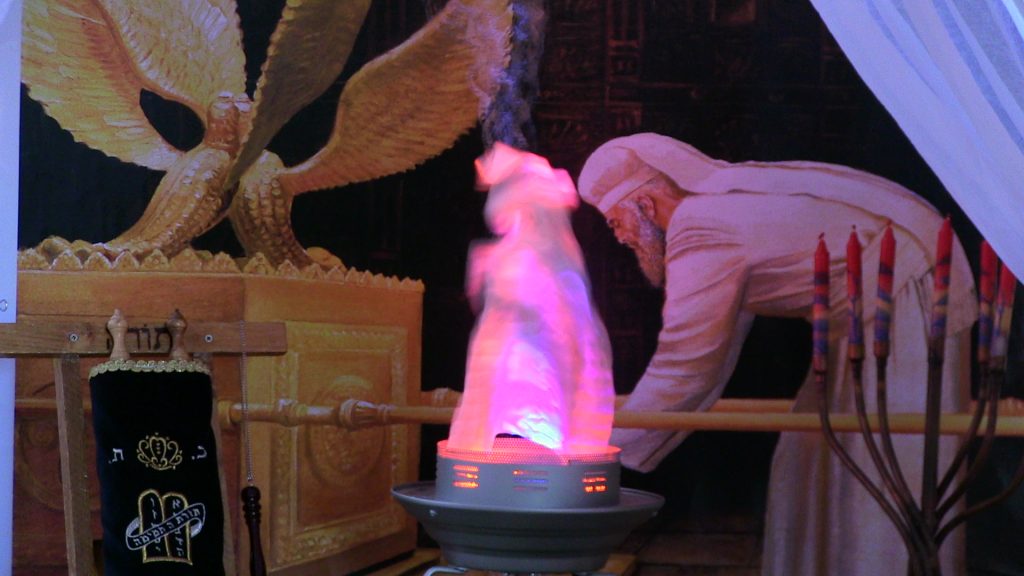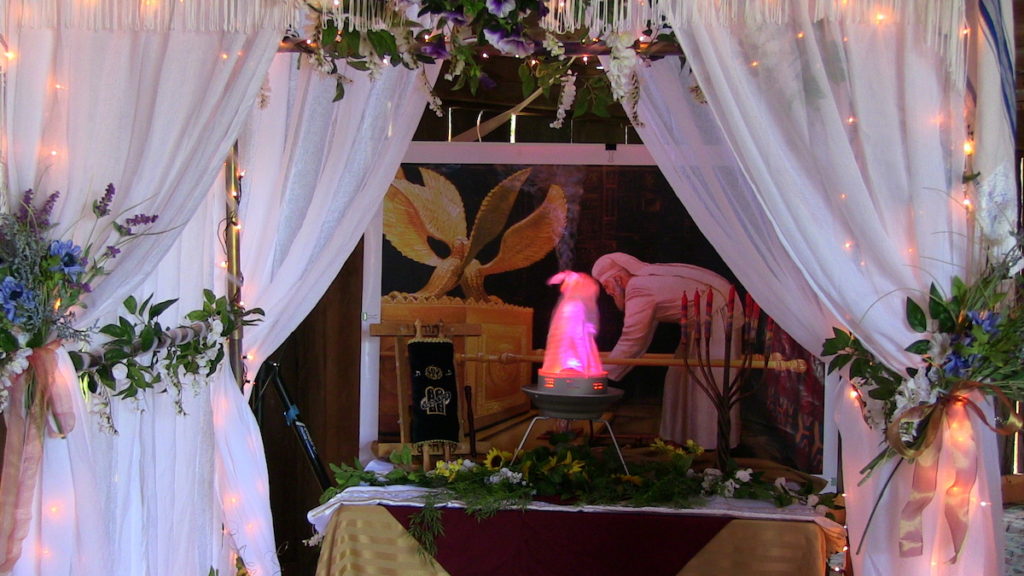
Numbers 7:89, When Moses went into the tabernacle.Moses entering into the inner most sanctuary of the tabernacle is a lesson for us in how to experience intimacy with our Father in heaven through Yeshua the Messiah. To understand this, let us first ask and answer some important question.
The holy of holies in the tabernacle from which the voice of YHVH emanated pictured what? (See Rev 7:15.) The Tabernacle of Moses is a spiritual picture of what? (Read Eph 3:21–22; 1 Cor 3:16; 1 Pet 2:5.)
If the holy of holies represents Elohim’s throne room in heaven, and the saints are the temple of the Set-Apart Spirit, can they, like Moses, hear the voice of Elohim? Again, let us explore the answer to this question by asking some more questions and finding the answers in Scripture. (See what Yeshua said in answer to this question in John 10:3–5, 27 cp. Acts 8:29; 10:19; 11:12; 29:4.) How does YHVH now speak to his people? (Note John 16:13; 1 Cor 2:12.) How does the Spirit interact with man to speak the mind, heart and will of Elohim to humans? (See John 14:17; Job 32:8; Prov 20:27; Rom 8:16; Eph 3:16; 1 John 2:20, 27; 4:2–3; 1 Cor 2:10–14.)
We find a corollary passages to Numbers 7:9 in Psalms 61:4 where David speaks of abiding in YHVH’s tabernacle forever, and putting his trust in the shelter of YHVH’s wings.With this in mind, now consider this:Over the mercy seat on the ark of the covenant, which was the seat of Elohim’s presence on earth and symbolically represented his heavenly throne room, was the over-shadowing wings of the two cherubim (for another perspective of Elohim’s throne room, see Isa 37:16; Ezek 10:1–22; 11:22–23). It was in this place of intimate worship before the “Rock that his higher than me” (verse 2) that David sought shelter or refuge and deliverance from his enemies (verse 3). Phrases like, “under the shadow of your wings” is a Hebraism meaning “before YHVH in the place and state of worship” (see also Pss 17:8; 36:7; 57:1; 63:7; 91:1, 4).
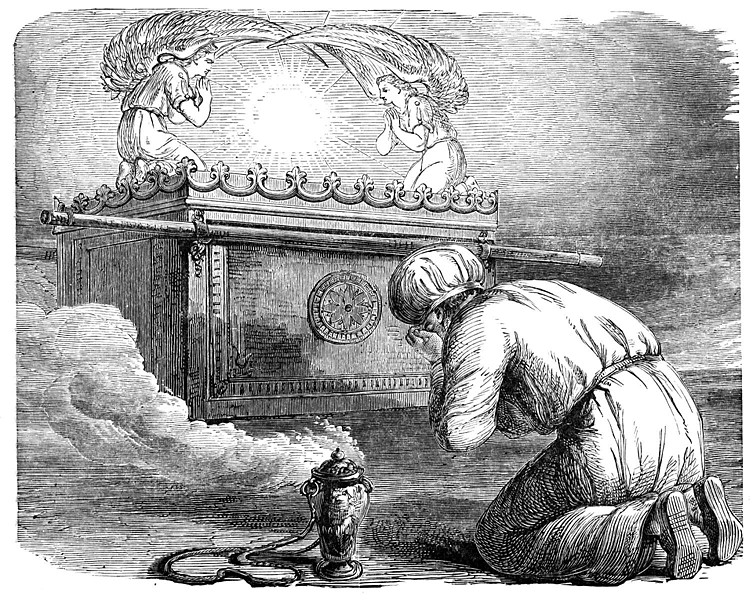
It was also in this place—between the cherubim—that Moses heard the voice of Elohim (Num 7:89), and that David would see the power or might, strength and glory or manifest presence of Elohim in a prophetic, ecstatic or spiritual vision (Ps 63:2). The saints now have access to the throne of Elohim through Yeshua the Messiah and prayer (Rev 5:8; 8:3).
Occasionally, YHVH will still communicate with his servants through an audible voice, dreams, visions, or an angelic visitation. But this is rare now, even as it was in biblical times. This is because YHVH is testing his people to see if they will walk by faith, not by sight (2 Cor 5:7), and will remain faithful to his written word as found in the Bible.
Currently, YHVH is refining, testing and preparing his bride—his people— for her marriage to Yeshua. Will she be faithful to him having never seen him visually? The time is coming after Yeshua’s coming, however, when she will be in YHVH’s blessed presence forever, which is the object or end goal of our faith.
Voice of One…above the mercy seat. Think about this for a moment. The ark of the covenant upon which the mercy seat rested contained and was surrounded by several items, which give us an understanding as to on what basis we are to come into YHVH’s presence to hear his voice.
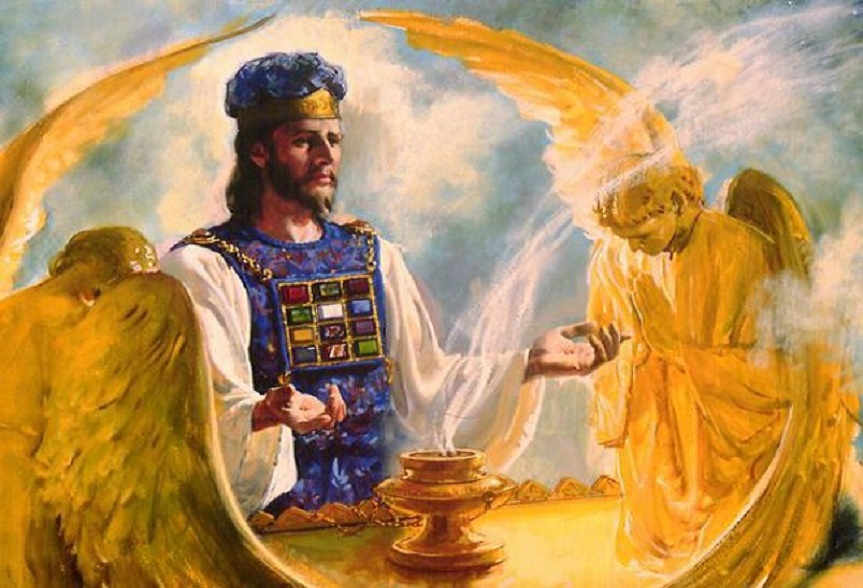
First, the ark contained Aaron’s rod that budded. Second, it contained the golden pot of manna and then the two tablets containing the ten words written by YHVH’s finger. Leaning up against the ark was the scroll containing the entire Torah that was given to the Israelites through Moses.
All together these items in and around the ark teach us that man can only come into YHVH presence on the basis the Torah-word of Elohim of which Yeshua was and is the Living Manna or bread from heaven, and upon which man must feed for his spiritual sustenance.
Even as the manna was in a golden pot, so YHVH’s words should be within the heart of man. The ten words or commandments which were written by YHVH’s finger form the foundation of the Torah and need to be written on the heart of man.
The heart of man contains two parts, like the two stone tablets, and man’s heart, until spiritually regenerated, is hard and stoney like the rock upon which the ten words were written.
YHVH is calling his servants to be a kingdom of priests of which Yeshua the Messiah is our Chief High Priest of which the rod, a symbol of the tree of life, is a prophetic picture. Under King Yeshua’s rulership, in his millennial kingdom, his priest-saints will exercise the authority in leading this world into obedience to and the worship of YHVH. The saints are presently in training for that lofty role as Yeshua’s kings and priest co-ruling with him over the world (1 Pet 2:9; Rev 1:6; 5:10; 20:6).
The Torah scroll leaning up against the ark shows us that obedience to YHVH’s instructions is dependent on our relationship with Yeshua through which his words must be written on our hearts by the indwelling presence of the Spirit of Elohim.
Moreover, when the high priest would come into the holy of holies, he carried a censor filled with incense and sprinkled lamb’s blood on the ark of the covenant. This is pictures the saints coming into YHVH’s Presence only through the blood of Yeshua the Messiah who atoned for man’s sins, and through humble prayer like a contrite petitioner before a mighty king.


